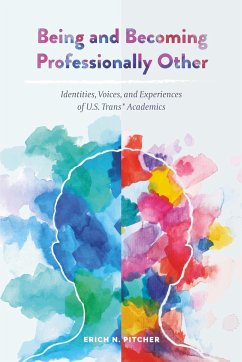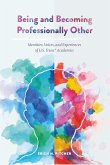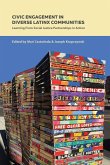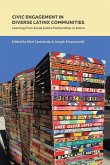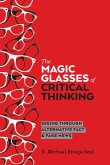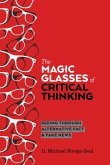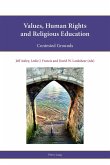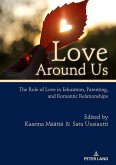Being and Becoming Professionally Other: Identities, Voices, and Experiences of U.S. Trans_ Academics is a path-clearing book that provides a rich, in-depth account of the lived experiences of 39 transgender or trans_ academics.
Despite increased visibility of trans_ issues within higher education, college environments remain unfriendly, and in some cases, overtly hostile to trans_ people. While there is much discussion of gender equity and faculty diversity, these conversations rarely include trans_ academics' voices. As a study participant described, trans_ voices are often out of place at best-or worse, completely discounted in academe, a betwixt place.
By not fitting into a particular mold, trans_ academics experience a variety of adverse events including microaggressions, outright hostility, and exclusion. These adverse experiences create a context wherein trans_ academics engage in various forms of additional labor. While not necessarily unique to trans_academics, these various forms of labor provided evidence to support my assertion that trans_ academics are or become professionally Other. Given this Other status, trans_ academics must form broad coalitions to bring about change within higher education organizations. Additionally, higher education leaders have an opportunity to change organizational contexts to better support trans_ academics by radically re-imagining colleges and universities.
This text would be an excellent choice for graduate and undergraduate courses about gender, qualitative research methods courses, and courses about academic careers, and organizational theories.
Despite increased visibility of trans_ issues within higher education, college environments remain unfriendly, and in some cases, overtly hostile to trans_ people. While there is much discussion of gender equity and faculty diversity, these conversations rarely include trans_ academics' voices. As a study participant described, trans_ voices are often out of place at best-or worse, completely discounted in academe, a betwixt place.
By not fitting into a particular mold, trans_ academics experience a variety of adverse events including microaggressions, outright hostility, and exclusion. These adverse experiences create a context wherein trans_ academics engage in various forms of additional labor. While not necessarily unique to trans_academics, these various forms of labor provided evidence to support my assertion that trans_ academics are or become professionally Other. Given this Other status, trans_ academics must form broad coalitions to bring about change within higher education organizations. Additionally, higher education leaders have an opportunity to change organizational contexts to better support trans_ academics by radically re-imagining colleges and universities.
This text would be an excellent choice for graduate and undergraduate courses about gender, qualitative research methods courses, and courses about academic careers, and organizational theories.
"Academe has long been a place where Otherizing practices disadvantage those who identify outside of proscribed binaries in particularly insidious ways. Pitcher's book seeks to remedy this unacceptable state of affairs by revealing the ways in which organizational cultures, norms, and 'taken for granteds' in the regime of academic life foreclose U.S. trans* academics from opportunities for recognition and advancement, and in turn, their quality of life. Before we can begin dismantling the systems that regulate and promote these disadvantages, we must first name them. Then, the work of dismantling cissexism and transphobia in the academy can begin. Pitcher's work, amplifying the voices of those who have endured these challenges, provides a deeply detailed roadmap, replete with clues to the structural change that will need to happen individually and collectively. His is an urgent and strategic call to transforming the academy that all scholar-activists can-and must-heed." -Susan B. Marine, Associate Professor, Higher Education, Merrimack College, and author of Stonewall's Legacy: Bisexual, Gay, Lesbian, and Transgender Students in Higher Education
"In this moving and scholarly account, Erich N. Pitcher invites the reader to listen to our trans_ colleagues' accounts of their professional challenges, but, more importantly, asks us to extrapolate from our trans_ colleagues' daily challenges of hegemonic norms in the academy and to imagine a university true to its essential organizing principle-higher learning as freedom, enlightened, liberal and radical. Being and Becoming Professionally Other: Identities, Voices, and Experiences of U.S. Trans_ Academics gives us a view of our institutions and the academic profession that we should take in with eyes wide open." -Ana M. Martínez Alemán, Boston College

